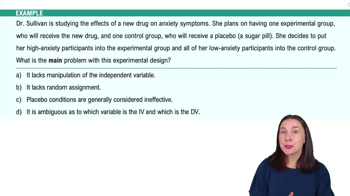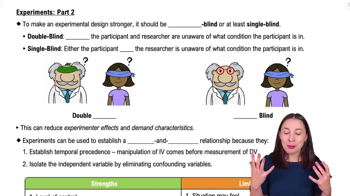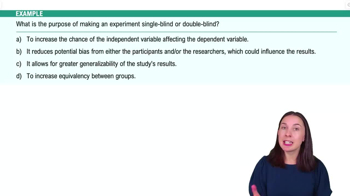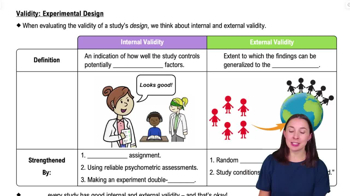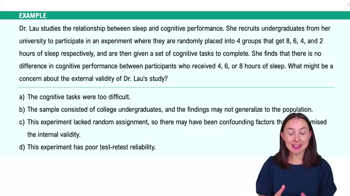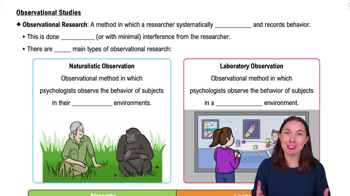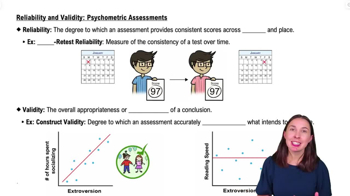Table of contents
- 1. Introduction to Psychology1h 43m
- 2. Psychology Research2h 20m
- 3. Biological Psychology2h 41m
- 4. Sensation and Perception28m
- 5. Consciousness and Sleep32m
- 6. Learning41m
- 7. Memory34m
- 8. Cognition37m
- 9. Emotion and Motivation35m
- 10. Developmental Psychology33m
- 11. Personality48m
- 12. Social Psychology41m
- 13. Stress and Health41m
- 14. Psychological Disorders44m
- 15. Treatment47m
2. Psychology Research
Intro to Research Methods
Struggling with Psychology?
Join thousands of students who trust us to help them ace their exams!Watch the first videoMultiple Choice
_____ cells, which may be used to grow new organs or tissues for transplant or to repair neurological damage, develop during the germinal period.
A
Skin
B
Heart
C
Stem
D
Red blood
 Verified step by step guidance
Verified step by step guidance1
Understand the context of the problem: The question is asking about a type of cell that develops during the germinal period and has the potential to grow new organs or tissues.
Identify the germinal period: This is the first two weeks of prenatal development after conception, characterized by rapid cell division and the beginning of cell differentiation.
Recognize the role of stem cells: Stem cells are undifferentiated cells that have the potential to develop into different cell types in the body. They are crucial during early development and for regenerative medicine.
Differentiate between the options: Skin, heart, and red blood cells are specialized cells that do not have the same potential for differentiation as stem cells.
Conclude that stem cells are the correct answer: They are the only type of cell listed that can develop into various cell types and are involved in early development during the germinal period.

 1:46m
1:46mWatch next
Master Roadmap of the Lesson with a bite sized video explanation from Hannah Gordils
Start learningRelated Videos
Related Practice










